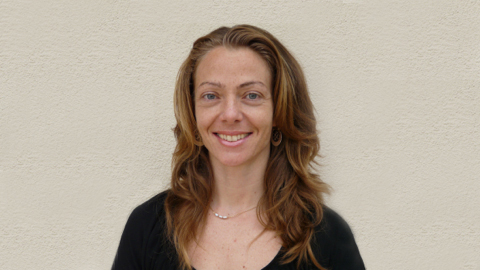Gara Villalba receives an ERC Consolidator Grant

12/12/2018
The European Research Council (ERC) announced the recipients of its Consolidator Grant competition: 291 top scientists across Europe. Funding for these researchers, part of the Horizon 2020 research and innovation programme, is worth a total of €573 million and will give them a chance to build up their teams and have far-reaching impact.
The ICTA-UAB researcher Gara Villalba has been awarded a Consolidator Grant for the project “Integrated System Analysis of Urban Vegetation and Agriculture” (URBAG). This ERC grant will launch the research lab “Integrated Metabolic and Atmospheric Research for Urban Sustainability”, formed by 3 postdocs, 3 PhDs and 1 technician.
Currently, many cities are implementing green infrastructures despite having little quantitative or comprehensive knowledge as to which infrastructure strategies are more effective in promoting food production, air quality and temperature while reducing environmental impact.
This research aims to discover how urban green infrastructures can be most efficient in contributing to urban sustainability, in order to improve the way cities function, in benefit of their inhabitants’ quality of life and their environments. This will evaluate which combinations of urban, peri-urban agriculture and green spaces result in the best performance in terms of local and global environmental impact.
For this purpose, Gara Villalba will use novel and comprehensive analysis which will integrate the life cycle impacts of the resources required for green infrastructures with the understanding of how green infrastructures impact the urban atmosphere interaction. This comprehensive approach allows to capture the urban metabolism to optimize the food-energy-water nexus. In previous works, the impacts only had been studied individually.
The analysis will consist of a geo-referenced land-use model to optimize urban and peri-urban food production in terms of nutrients, water, and energy; while also considering urban morphology and determining life cycle impacts and a spatially-temporally resolved framework for quantitative analysis and simulation of green infrastructures to determine the direct and indirect effects on the urban and regional atmosphere.
The research will be implemented in two selected cities with different profiles, Barcelona and Oslo. The study aims to gather substantial quantitative evidence in green infrastructures and sustainability, contributing to cover the existing gap in previous works.
This project and the envisaged “Green infrastructures - A Guide for city planners and policy makers” are timely and urgent. This intended guide will contain evidence-based guidance and tools to create green infrastructure strategies, to help meet sustainability targets and promote wider and diffused social benefits.
The overall goal is a social one: to improve the way cities function, in support of their inhabitants’ quality of life and their environments. Specifically, the proposed research project examines how and to what extent urban green infrastructures can be a source of sustainable food, reduce environmental impacts, and promote a more efficient use of resources. Among the disciplines used in this study are environmental science and technology, agronomy and engineering, urban planning, policy and science. Atmospheric science, carbon science and life cycle modelling are also sub-disciplines involved in this research.
Gara Villalba is associate lecturer of the Department of Chemical, Biological and Environmental Engineering of the Universitat Autònoma de Barcelona. Her bachelor’s degree is from the Massachusetts Institute of Technology (1998), and her PhD from the University of Barcelona (2003), both in chemical engineering. She dedicates her research to the study and optimization of resource metabolism, a broad multidisciplinary area where she applies her chemical engineering skills to industrial ecology methods such as Material Flow Analysis and Life Cycle Analysis. The applications of this systems-focused research are diverse and multidisciplinary, such as assessing the sustainability of new technologies that make use of non-renewable and scarce metals; quantifying the material, energy and water consumption at urban scale to establish baseline GHG emission accounting protocols; waste-to-energy optimization and evaluation for improved municipal solid waste management.
The ERC Consolidator Grants are awarded to outstanding researchers of all nationalities and ages, with at least seven and up to twelve years of experience after PhD, and a scientific track record showing great promise. Research must be conducted in a public or private research organisation located in one of the EU Member States or Associated Countries. The funding (average of €2 million per grant), is provided for up to five years and mostly covers the employment of researchers and other staff to consolidate the grantees' teams.